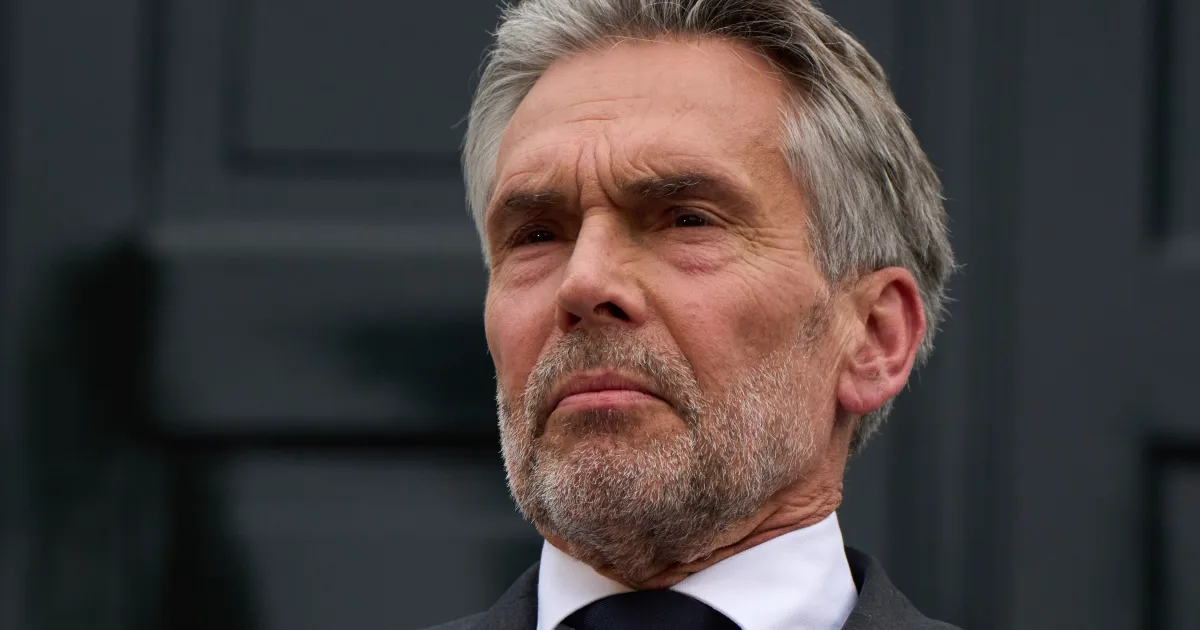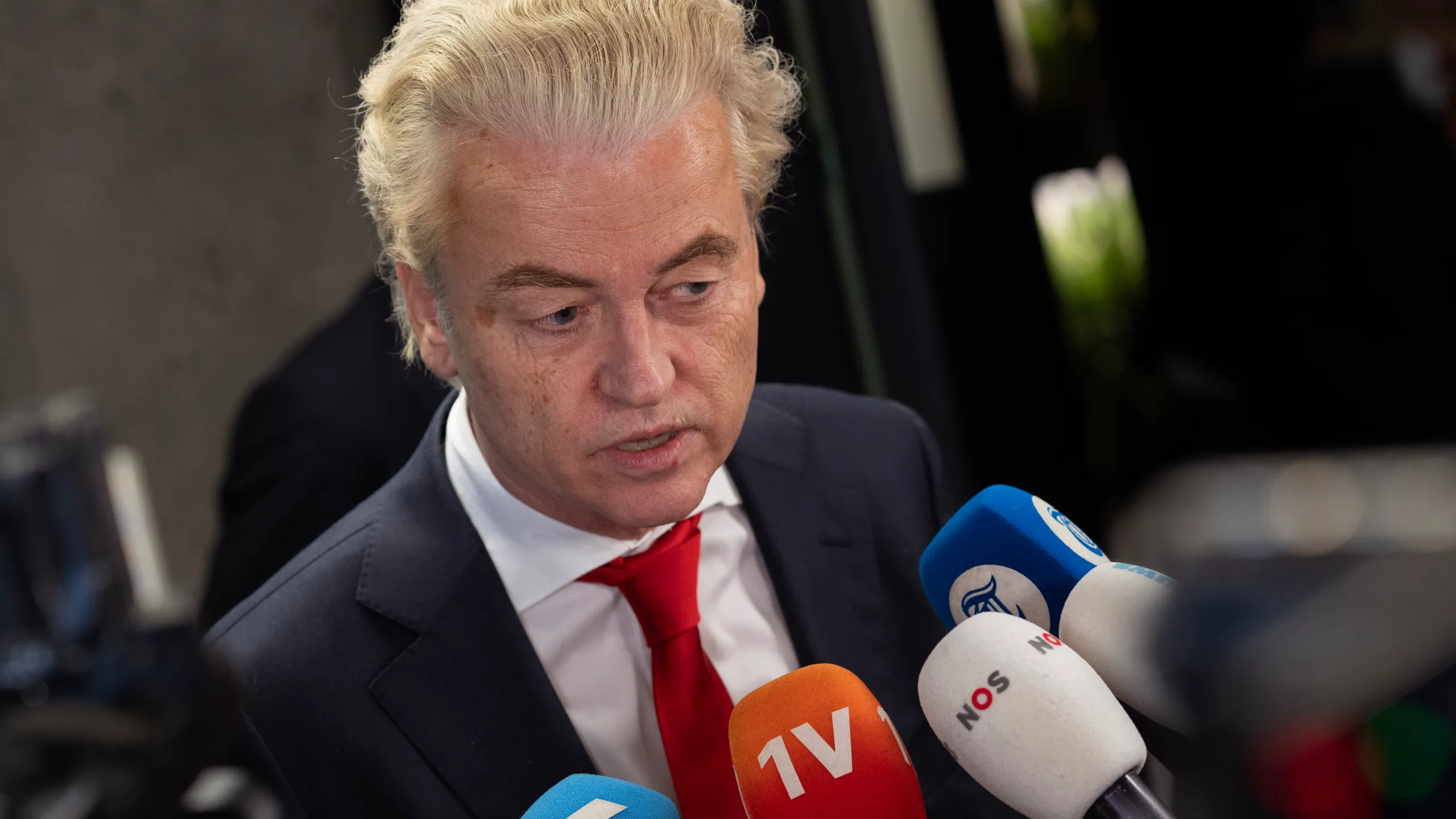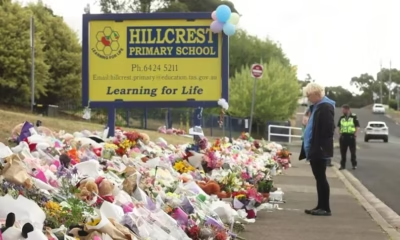Netherland
Dutch Politics Shattered as Far Right Abandons Coalition Over Migration
Geert Wilders’ surprise withdrawal from the Dutch government triggers collapse just 11 months after taking office, sparking fresh political chaos.

The Netherlands is once again plunged into political uncertainty after Geert Wilders, leader of the far-right Party for Freedom (PVV), abruptly pulled out of the ruling coalition, collapsing the most right-leaning government in Dutch history. The decision—rooted in a disagreement over asylum policy—has left the nation’s political system in disarray and triggered calls for fresh elections, less than a year after the coalition took power.
Speaking to reporters on Tuesday, Wilders declared, “I signed up for the strictest asylum policy, not for the downfall of the Netherlands… our responsibility for this cabinet therefore ends here.” His exit strips the government of its majority in the 150-seat parliament, leaving Prime Minister Dick Schoof with just 51 seats and no path forward but to serve in a caretaker capacity.
The “Captain of Dutch Nationalism,” as some analysts dub Wilders, had demanded drastic new asylum measures—ranging from halting refugee applications to shutting down asylum centers. Yet, despite his own party controlling the asylum and migration ministry, many of the demands were deemed legally unviable by coalition partners. The stalemate escalated into a dramatic walkout on Tuesday morning when a final negotiation session lasted just one minute before Wilders exited.
Prime Minister Schoof, who immediately submitted his resignation to King Willem-Alexander, condemned the move as “unnecessary and irresponsible.” Analysts agree that the government’s collapse is less about migration and more about political maneuvering. According to Armida van Rij of Chatham House, Wilders may have deliberately triggered the crisis to regain momentum amid slipping poll numbers.
Reactions from former coalition partners were swift and scathing. Dilan Yesilgoz of the center-right VVD called the move “super irresponsible,” while deputy Prime Minister Mona Keijzer accused Wilders of betraying the Netherlands. “This wasn’t about asylum at all,” Keijzer said, suggesting the PVV leader’s ambitions to become prime minister are overtaking national interest.
Polls indicate that while the PVV remains the largest party by a narrow margin, center-right and center-left factions are gaining strength. Dutch politics, built on coalition building due to its fragmented multi-party system, now faces the challenge of forming a viable majority without a stable lead.
With a NATO summit scheduled in The Hague later this month, Schoof’s administration is expected to stay on in a caretaker role until new elections are organized—likely in the fall. But Wilders’ aggressive tactics may make future coalition-building even more difficult, as former partners and rivals alike grow wary of his unpredictable strategy.
Observers note that the far-right leader’s gamble could backfire. Having overseen the asylum portfolio for nearly a year without major reforms, Wilders’ decision to topple the government over the same issue could be seen as political theater rather than principled resistance. Whether Dutch voters reward him or turn toward more centrist options remains to be seen.
Netherland
Why Did the Dutch Government Really Collapse You Won’t Believe on the Reasons
As the far-right PVV walks away, the sudden fall of the Dutch coalition isn’t just about asylum laws — here are the top 3 real reasons behind the political earthquake.

The fall of the Dutch government this week has left citizens and political analysts stunned. After less than a year in power, the ruling coalition was abruptly shattered when Geert Wilders, the far-right Party for Freedom (PVV) leader, withdrew his support. While the headlines focus on asylum disagreements, insiders suggest the collapse was driven by a much deeper and more strategic set of issues. Here are the top three reasons believed to have triggered the dramatic political breakdown.
1. A Calculated Political Move by Wilders
While Wilders blamed asylum policy, many suspect the “Captain America of Dutch populism” used the issue as a smokescreen. Political experts, including Chatham House’s Armida van Rij, speculate that the PVV leader saw his popularity dipping and chose to spark a crisis to regain narrative control. With fresh elections likely in the fall, Wilders may have gambled on breaking away early to reset his image and rally his base. The timing, just ahead of the upcoming NATO summit in The Hague, only adds to the speculation that this was more political theater than principled defiance.
2. Deep Fractures Within the Coalition
The coalition that came together after the 2023 elections — composed of the PVV, VVD, BBB, and New Social Contract — was widely described as a “marriage of convenience.” Infighting and conflicting ideologies plagued the alliance from the start. Though they promised unity, internal documents and off-the-record quotes reveal constant clashes, especially over sensitive issues like migration and climate. Even some of Wilders’ asylum demands mirrored existing policies, causing critics to call his walkout performative. The lack of mutual trust finally caused the entire structure to implode.
3. Legal and Constitutional Constraints on Far-Right Demands
Here’s what most people didn’t see coming: Wilders’ ultimatum wasn’t rejected solely on ideological grounds — many of his proposals simply weren’t legal. Measures like closing the borders to asylum seekers, halting all reception center construction, and canceling family reunifications would have violated Dutch and European Union laws. His own ministers couldn’t enforce these proposals without triggering legal chaos. Sources inside the coalition claim that Wilders knew this, and when resistance mounted, he used it as a scapegoat to exit without admitting policy failure.
With Prime Minister Dick Schoof now leading a caretaker government and elections looming, the Dutch political landscape is more fragmented than ever. While Wilders positions himself for a comeback, critics say his latest move may backfire. Betraying coalition partners and abandoning leadership in a crisis could erode trust among both voters and future allies.
One thing is clear — this wasn’t just a disagreement about asylum seekers. The collapse of the Dutch government reveals how ambition, instability, and constitutional reality collided in one of the most dramatic political moments in recent European history.
Politics
Geert Wilders Triggers Political Chaos as Dutch Government Collapses Over Migration Dispute
Geert Wilders’ dramatic withdrawal from the Dutch coalition over migration policy sparks political chaos and uncertainty

Geert Wilders, the populist leader of the Party for Freedom (PVV), has caused the collapse of the ruling coalition over a disagreement about migration policy. The move, which came after a bitter dispute over asylum measures, has left the country facing political uncertainty and the possibility of early elections.
Wilders’ decision to withdraw his party from the coalition, after a failed attempt to push through additional asylum restrictions, has sparked anger and frustration among his former coalition partners. Despite previously agreeing to a stringent migration policy, Wilders pushed for even harsher measures, including freezing asylum applications, halting the construction of reception centers, and limiting family reunification for asylum seekers.
Prime Minister Dick Schoof, who expressed his disappointment over Wilders’ decision, calling it “irresponsible” and “unnecessary.” Schoof also announced that he would resign and stay on as a caretaker leader until early elections are held, leaving the country in a state of political limbo for the foreseeable future.
The Dutch coalition government, which included Wilders’ far-right PVV, the conservative-liberal People’s Party for Freedom and Democracy (VVD), the Farmers’ Citizen Movement (BBB), and the New Social Contract (NSC), was never a stable alliance. From the start, the coalition struggled with infighting and had difficulty pushing through significant policies.
Wilders’ push for a tougher migration stance has been a key aspect of his political platform. His party’s rise to prominence in the 2023 elections shocked the Dutch political establishment, and he had hoped to make significant strides in restricting immigration and asylum seekers. However, after a year of delays and internal conflicts, Wilders grew impatient and pulled the trigger, sparking the collapse of the government.
Opposition leaders and even some within his own coalition criticized Wilders’ move. Dilan Yesilgoz-Zegerius, leader of the VVD, called his decision “super irresponsible” and warned that his actions could damage his political future. Caroline van der Plas, leader of the BBB, accused Wilders of prioritizing his personal ambitions over the country’s stability, stating that he was “putting Geert Wilders first, not the Netherlands.”
The impact of this collapse could be far-reaching. With the NATO summit set to take place in The Hague later this month, the timing could not be worse for Dutch politics. Foreign relations, particularly with NATO and the EU, may be affected by the political instability, and the country’s handling of its migration crisis will now be a central issue in the upcoming election campaigns.
Wilders has since made it clear that he plans to run for prime minister in the next election, pushing forward with a hardline stance on immigration. “We are going to build an even bigger PVV,” Wilders declared. However, his decision to collapse the government could complicate his efforts to form future alliances. As polls show growing support for both far-right and Green-Left parties, it remains to be seen whether Wilders’ gamble will pay off.
Despite Wilders’ claims that the collapse is all about asylum policy, some experts believe that this may also be a strategic move to capitalize on his increasing popularity and undermine the political stability of his opponents. By making immigration a central issue, he hopes to strengthen his position ahead of the elections and consolidate his support base.
As the Netherlands prepares for early elections, Wilders’ next steps will be crucial. The collapse of the government leaves the country in a precarious political position, with the specter of instability looming large. With mounting challenges and political tensions, the Dutch political landscape is now more uncertain than ever.
-

 Personality6 days ago
Personality6 days agoDonald Trump’s net worth reveals the fortune behind the former US President and business mogul
-

 Entertainment7 days ago
Entertainment7 days agoTop 5 Oscar Moments That Shook Hollywood and the World
-

 Entertainment5 days ago
Entertainment5 days agoJonathan Joss Shot Dead at 59 in Texas Tragedy His Husband Says Was Hate-Fueled Crime
-

 Personality6 days ago
Personality6 days agoLionel Messi’s Net Worth Revealed and How the Football Legend Built His Multi-Million Dollar Fortune
-

 Tech1 week ago
Tech1 week agoTop 7 AI Tools Every Corporate Employee Should Use in 2025.
-

 Films5 days ago
Films5 days agoRobert Pattinson’s Top 5 Films That Showcase His Evolution from Teen Idol to Indie Icon
-

 Films6 days ago
Films6 days agoJames Gunn’s Net Worth Revealed How the Filmmaker Built His Fortune
-

 IPL5 days ago
IPL5 days agoRCB Finally Lifts the IPL Trophy After 18 Years of Heartbreak and Hope
























Pingback: Why Did the Dutch Government Really Collapse You Won’t Believe on the Reasons - Daily Global Diary